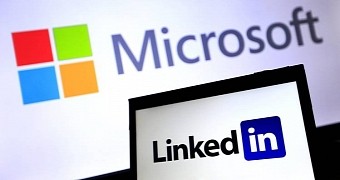Microsoft took everyone by surprise earlier this week, when it announced the acquisition of LinkedIn for no less than $26.2 billion, but when looking at Redmond’s finances, it’s no surprise that it can afford such expensive takeovers.
Microsoft has more than $100 billion in cash in overseas accounts, but when it comes to the LinkedIn acquisition, the company’s trying a strategy that could avoid it sidestep no less than another $9 billion it would have to pay in taxes to the United States.
The Seattle Times writes that Microsoft is now seeking a loan to complete the purchase of LinkedIn, a move that would help the company avoid a tax of 35 percent when bringing cash into the country from other overseas accounts.
Microsoft hasn’t disclosed how much it wants to borrow to buy LinkedIn, but the aforementioned source claims that, by avoiding the tax on bringing cash in the United States from overseas accounts and deduct interest payments, it could save no less than $9 billion that it would otherwise have to pay in taxes only this year.
Microsoft could come under fire once again
While this is a strategy that could help the software giant sidestep US taxes, it could also attract criticism from US politicians who are fighting against practices that local tech giants turn to in order to dodge taxes. And yet, Microsoft isn’t the only company that prefers to borrow money to finance a takeover in order to avoid taxes, as several other cases have already been recorded in the last few years.
Apple, for instance, turned to a loan of $6.5 billion in order to pay dividends, despite the fact that the company has no less than $180 billion in foreign accounts. But by bringing cash in the United States, Apple would have been forced to pay taxes, so it decided to borrow the money and thus sidestep the system.
In the case of Microsoft, the Redmond-based company is clearly trying to take advantages of the low rates in a moment when no less than 97 percent of its cash is held overseas, so it doesn’t make sense to pay taxes to the United States, when it can adopt a legal method that can help it save billions.
Without a doubt, this leads to more questions as to why the United States tax code allows large companies to embrace such schemes to dodge taxes, especially given the fact that many have already been accused of using tax havens in the past few years.
According to estimates, US companies have no less than $2 trillion stored in accounts overseas, and if brought in the United States, all this money would generate no less than $600 billion in taxes.

 14 DAY TRIAL //
14 DAY TRIAL //